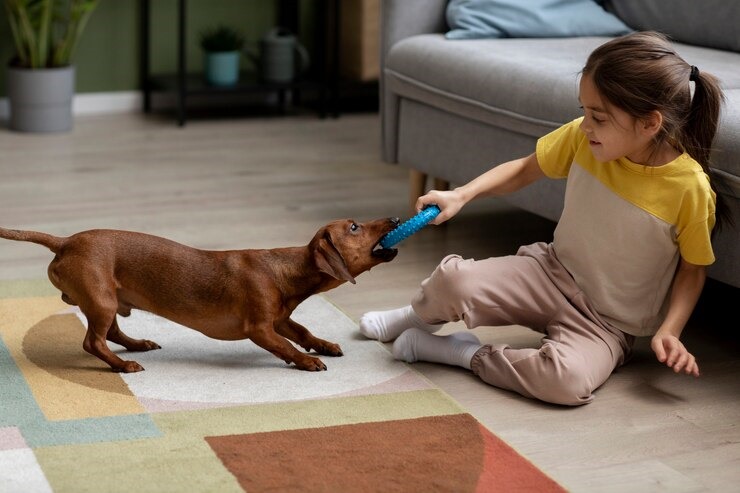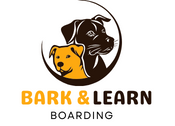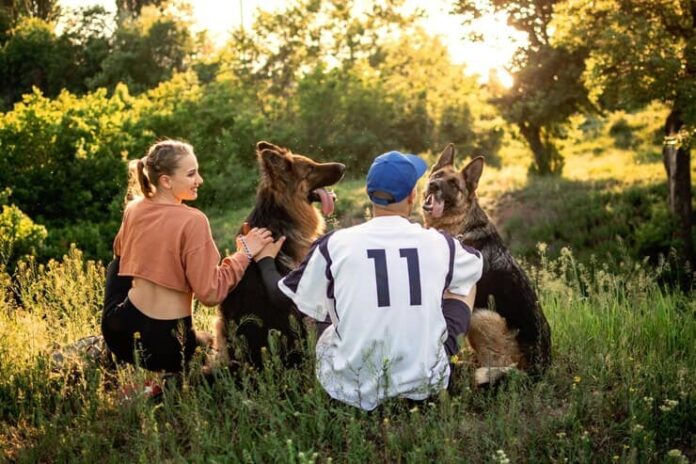Dog training camp are like fun schools for dogs and their owners. They help dogs learn good manners, listen to commands, and play nicely with other dogs.
In these camps, dogs get to learn essential things in a place that’s full of fun and friends. Let’s learn more about these excellent dog training camps and see why they’re so great.
Benefits of Dog Training Camp
Socialization
One of the best things about dog training camps is that they help dogs make friends.
Dogs get to meet all kinds of other dogs and learn how to behave around them. This helps them feel more confident when they meet new animals and people.
Being social is important for dogs. It helps them not to be scared or aggressive and makes them feel at home wherever they go.
Behavioral Modification
Some dogs can have problems like being too aggressive, feeling scared, or barking too much, and this can make it hard for them to get along with their owners.

At dog training camps, some expert trainers know how to help dogs with these problems.
With lots of praise and regular practice, dogs can learn to behave better and stop doing things that cause problems.
Obedience Training
Learning to follow commands is a big part of a dog’s training. It helps them understand what their owners want them to do.
In dog training camps, dogs learn basic commands like ‘sit,’ ‘stay,‘ ‘come,‘ and ‘heel.‘ They practice these in lessons and real-life situations.
This helps dogs and their owners understand each other better, making their relationship stronger and happier.
Choosing the Right Dog Training Camp
When choosing a training camp for your dog, consider a few things. This will help ensure that your dog has a good time and learns a lot.
Location and Facilities
The location of the dog training camp is significant. It helps dogs learn better.
The camp should have a big outdoor area where dogs can run around and play with other dogs. It should also have clean indoor spaces where dogs can learn new things.
The camp must be safe and clean for your dog’s health while they stay there.
Training Methods
Different dog training camps teach dogs in various ways. Some use old ways, and some use new ways.
You should find out what ways each camp uses to teach dogs. Choose a camp that suits your dog’s personality and what you want your dog to learn. It’s usually best to choose a camp that uses positive methods.
This means they reward dogs when they do the right thing. This method of teaching is excellent and fair.
Trainer Qualifications
The quality of the camp’s trainers can tell you a lot about how well your dog will learn there.
Try to find camps with certified and experienced trainers. These trainers should really understand how dogs behave and how to train them.
Also, it can be helpful to listen to what other people have said about the trainers. Their experiences can tell you a lot about how good the trainers are
What to Expect During Dog Training Camp
Dog training camps usually have a set schedule every day. This helps the dogs learn better and stay interested.
Daily Routine Dog Training Camp
Imagine a day at a dog training camp. It starts with some fun exercises in the morning. Then, the dogs learn new things in training sessions.
They also get to play and make friends during socialization activities. And, of course, they have rest periods to relax and recharge.
Dogs love doing the same things at the same time every day. This helps them feel safe and pay attention during their training. So, having a regular schedule is very important at the camp.
Training Sessions for Dog Training Camp
Imagine a day at a dog training camp. It starts with some fun exercises in the morning. Then, the dogs learn new things in training sessions.
They also get to play and make friends during socialization activities. And, of course, they have rest periods to relax and recharge.
Dogs love doing the same things at the same time every day. This helps them feel safe and pay attention during their training. So, having a regular schedule is very important at the camp.
Socialization Activities
Besides the regular training, dog training camps also have fun activities. These activities help dogs learn to play nicely with other animals and people.
There’s group playtime, where all dogs play together, and supervised interactions, where dogs are watched closely while they play.
And there are structured games, which are like fun lessons. All these activities help dogs make friends and learn good manners.
Aftercare and Continued Training
When the training camp is over, the owners are taught how to use the new skills their dogs have learned at home. They also learn how to keep teaching their dogs more new things.
Implementing Learned Skills at Home
Remember, consistency is very important when you want to use the things you learned at training camp at home.
Pet owners should often practice the training exercises, consistently reward their dogs for good behavior, and talk clearly with their dogs. This will help their dogs keep getting better.
Follow-up Sessions Dog Training Camp
Many dog training camps have extra classes or help services. These are to help pet owners with any remaining problems or to improve their dogs’ training.
These extra classes can include more training lessons, checks on the dog’s behavior, or special coaching. All of this is to help the dog keep learning and growing.
Testimonials from Dog Owners
Sarah, a dog owner, said, ‘Our dog changed a lot after going to a training camp. He learned how to behave and also became more confident and friendly.‘“
“David, another dog owner, shared, ‘I wasn’t sure if sending my dog to a training camp was a good idea. But I was surprised! The trainers were kind and knew a lot about dogs. The training really helped my dog.
Conclusion
Dog training camps offer a holistic approach to canine education. They address behavioral issues, enhance obedience, and foster socialization in a supportive environment.
By choosing the right camp and committing to consistent training, you can empower your dog to become a well-behaved and confident companion for life.
FAQ’s
1. How long does it take to see results from a dog training camp?
Results may vary depending on the dog’s temperament, the severity of behavioral issues, and the effectiveness of the training methods. However, many owners notice significant improvements within a few weeks of consistent training.
2. Are dog training camps suitable for all breeds and ages?
Yes, dog training camps cater to dogs of all breeds, sizes, and ages. Whether you have a young puppy or an older dog, there are programs tailored to meet their specific needs and developmental stages.
3. Can I visit the training camp before enrolling my dog?
Most training camps welcome prospective clients to visit the facility, meet the trainers, and observe ongoing sessions. Visiting the camp allows you to assess the environment and ensure it meets your expectations before committing.
4. Will my dog be safe at a training camp? Dog training camps prioritize the safety and well-being of all participants. Trainers closely supervise all activities, and measures are in place to prevent accidents or conflicts between dogs. Additionally, vaccination requirements and health screenings help ensure a healthy environment for all attendees.
5. How much does it cost to enroll my dog in a training camp? The cost of dog training camps varies depending on factors such as the duration of the program, the level of customization, and the amenities offered. It’s advisable to inquire about pricing and any additional fees during the initial consultation with the training camp.

